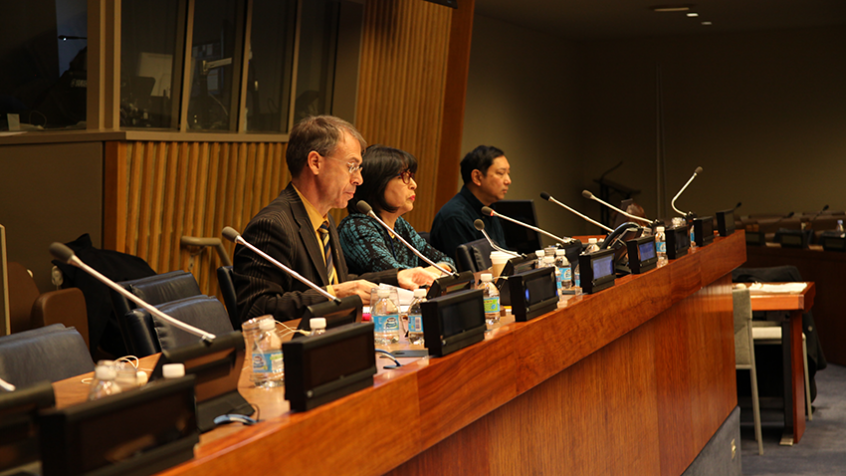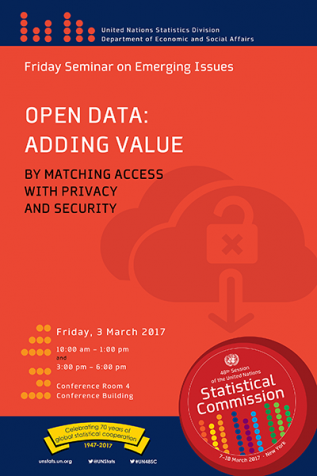
Understanding the future of open data
Statisticians, civil society and private sector gathered together on 3 March for a seminar on open data ahead of the 48th session of the UN Statistical Commission taking place on 7-10 March. Discussing new trends and emerging issues, the seminar examined the opportunities that open data brings and how it can help spur innovative solutions, efficiency gains and create powerful analytical tools, which can help improve services and generate growth for all citizens in a just society envisioned in the 2030 Agenda for Sustainable Development.
The event included presentations by 15 speakers focusing on partnerships, technology, legislation, the institutional environment, capacity building and resource mobilization.
To advocate for the value of open data, a key note address featured the partner and co-founder of Open Data Watch Ms. Shaida Badiee.
“When I left the World Bank I knew there was a job uncompleted,” Ms. Badiee said. “And that was open data. Open data is a tremendous enabler to improve life and democratize societies.”
Ms. Badiee explained that although countries are making good progress there is still a long way to go according to the Open Data Inventory (ODIN) database. ODIN, which measures the coverage and openness of official statistics in 173 countries based from statistics on education, health, population, poverty, pollution and more. Sweden tops the list with an overall score of 81.
 So what can be done to make the world more open to open data?
So what can be done to make the world more open to open data?
According to Ms. Badiee, open data should not be looked at as an outcome but as a process that requires strategic planning for the future.
Although data shows that western countries are the most open on average, recent trends say that’s not always the case.
“There are high-income countries that are doing well in open data but also developing countries are striving to do better than some of their neighbours,” Ms. Badiee said. “That shows that you don’t need money.”
In fact, Mr. Joel Gurin, president of the Center for Open Data Enterprise believes that open data can actually reduce costs.
“We can increase the use and reuse of data and maximize investments in statistics and data production,” Mr. Gurin said. “Statistics are very sought after.”
The seminar built on the outcome of the Cape Town Global Action Plan for Sustainable Development Data and will provide a prelude for what to expect at the 48th session of the UN Statistical Commission.
Some of the takeaways of the Seminar are:
- open data platforms provide free access and use of data for purposes of transparency, accountability and daily decision making;
- it is important to ensure that the principles of data rights and access are matched with strict ethical and security protocols;
- advanced technologies and approaches to data architecture and management will facilitate and enable the efforts to making data more open;
- collaboration with civil society is critical in such areas of principles, readiness and evaluation of openness of data whereas collaboration with academia and technology companies is essential for building portable and interoperable common technology infrastructure as a public good.
The outcome of the Friday Seminar will also be brought to the attention of the Statistical Commission at its sessions on 7 to 10 March.

Follow Us